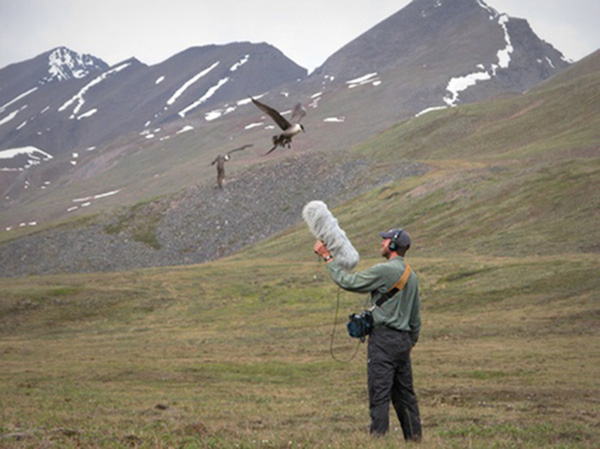
WORLD’S LARGEST NATURAL SOUND LIBRARY NOW FREE TO USE
The Macaulay Library, with over 150,000 recordings of 9,000 species is now digitised and has been uploaded to a searchable database that’s free to use.
The library, housed at Cornell University’s Lab of Ornithology, has made available over ten terabytes of recordings, with a runtime of 7513 hours of natural sounds.
The collection, which began in 1929, has taken researchers dozens of years to accumulate. It currently holds recordings to a massive three-quarters of the world’s entire bird species. But it’s not all chirps and squawks — there’s also a decent helping of whale songs, insects, bears, elephants, primates and just about every other critter or creepy crawly that roams the earth.
The collection’s curator Greg Budney describes the archives as revolutionary, in terms of the speed and the breadth of material that is now accessible online.
“This is one of the greatest research and conservation resources at the Cornell Lab,” said Budney. “And through its digitization we’ve swung the doors open on it in a way that wasn’t possible 10 or 20 years ago.”
“Our audio collection is the largest and the oldest in the world,” explained Macaulay Library director Mike Webster. “Now, it’s also the most accessible. We’re working to improve search functions and create tools people can use to collect recordings and upload them directly to the archive. Our goal is to make the Macaulay Library as useful as possible for the broadest audience possible.”
Now that the team has digitised its massive archive, it’s focusing on collecting new material from amateur and professional recordists from around the world.
The sounds are not only used by sound designers and filmmakers, but also by researchers, museums, or anyone interested in the sounds of nature.
“Plus, it’s just plain fun to listen to these sounds,” explained Bundy. “Have you heard the sound of a walrus underwater? It’s an amazing sound.”
More info:
Macaulay Library: macaulaylibrary.org

















RESPONSES